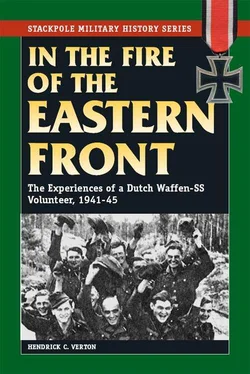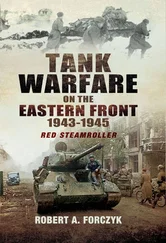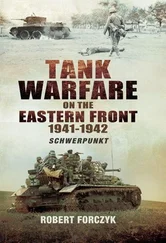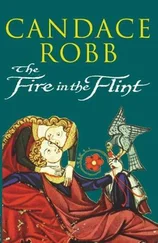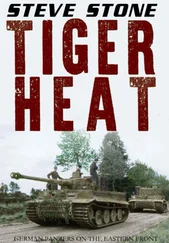The terrain was flat. Now and again it was broken by small woods of birches. Our first assessment of our surroundings was broken with a shrill cry of “are you both tired of life, get your heads down!” We were in the sights of the enemy. We had sauntered into open positions where two comrades held guard behind a wall of snow. Our comrades showed us the company command post. The sergeant-major was astounded at the arrival of his two lost sheep. We were already on the missing list to be sent to the regiment. The greeting on our return was a very happy one. Our chums were eager to bring us up to date with the latest news. It was disturbing to say the least. Some of the battalion’s lorries had become lost in a snowstorm on the way to the Front. They had been taken prisoner by the Russians. After a counter-attack, our men, mainly the Norwegians, had been found beaten to death, and lay frozen in the river Oka. Our commander had been killed and we had many dead and wounded. Every man was desperately needed and Robert and I were detailed to reconnaissance. “Not even in battle, and you lose yourselves! Well then I can only say that you must be well rested,” was the comment from our platoon leader.
A recce was ordered at midnight and until then we could snatch a couple of hours’ sleep. Sleep, before our first battle? The tension of our baptism of fire however kept us very wide awake. Our assignment was to patrol a wood, lying to the east, in the sector of the 2nd Company, to see if it was free of the enemy. Punctually at midnight, twelve soldiers and a patrol-leader sprang from the foremost trenches in the direction of the enemy. The guards were informed, so that upon our return we were expected, and not fired upon by our own troops.
We were led by our corporal in the front rank, who had a machine-pistol and we followed with our rifles, at every two or three metres. It was freezing cold and a yellow-white moon shone brightly over the dark wood. No one spoke. Only the hard crunch of the frozen ground was to be heard under our boots, or the unavoidable snap of a twig or a branch or two, as we reached the wood. So far, so good! However, once or twice we fell into shell-holes that we hadn’t seen, for the woods were often the target, from both Germans and Russians. The night appeared to have many eyes. Our imagination told us that there was a ‘Red Army man’ behind every tree and bush. Despite the bitter cold, we sweated under our white ‘cammos’ as we pressed deeper into the wood. Every time the moon disappeared behind a cloud, a flare rose in the sky from the east, turning night into day and we instantly thought “we’ve been seen”! But as the magnesium light faded, the night appeared once more like a blanket over the wood.
We started to believe that the wood was free of the enemy, when suddenly a Russian machine-gun started to clatter into the night and we hit the ground, as red neon flares snaked over our heads. In panic, I tried to burrow into the stone-hard frozen ground and couldn’t. In that moment I no longer felt the bitter cold. I did however feel a dull thud against my intestines which released a frosty cold net over my skin. Was that already the end for me? Just as the war had begun? The next volley of shots brought a scream of pain from our platoon leader, who had been shot in the spine. That seemed to release our panic-stricken paralysis. In the blink of an eye, the men pulled them selves together and showed what they had learned and what they were made of. Either in lying or kneeling positions, and half hidden by the trees, we returned the enemy’s fire which came from every nook and cranny. We had probably run into a Russian platoon who had the same assignment, i.e. to confirm that the wood was free of the enemy.
I was given the order from the patrol leader’s second-in-command to fetch help for the wounded corporal. Like a hunted deer, I ran back to where we had entered the wood. In my haste I tripped over a fallen tree. In picking myself up, I looked into two lifeless eyes. It was not a fallen tree but a fallen Russian soldier. His eyes wide open, he stared from a yellow face into heaven, like a frosty ghost in the moonlight.
I arrived totally out of breath at the foremost trenches and nearly forgot the passwords. I reported to our company command post. Two medics then accompanied me to the wounded corporal, who between times had lost consciousness. We tied our comrade on to a Finnish sledge, i.e. a slightly formed sledge without runners, and transported him as quickly as we could to the battery’s first-aid station. However, he died from his injuries that same night.
The inferno of our baptism of fire was constant, so constant that we became somewhat more composed each and every time. That did not mean to say that it did not bring new sorrow, each and every time. The question that I asked, and many others too when they were honest enough to admit it, was “will I pass with flying colours?” The question was now pointless, invalid, for the war was an examination, each and every day.
The words from General Guderian, the Panzer General, were to “get on with the job and don’t mess around!” His words no longer applied. For those who found themselves in the central sector of the Eastern Front did not have the luxury to “mess around”. The battle for Moscow was lost, for us as well as those who were situated between the Orel and the Don. One could say that the victory had frozen to death.
Those in power in the Kremlin now shared the opinion that the German Army would suffer the same fate as Napoleon and his troops, in face of the severity of nature’s elements, which they themselves had never experienced. Although the view over the snow-covered steppe was without end, the German soldier of course, only saw what was happening in his own sector. We, in December of 1941, did not know that German soldiers in that sector would have to fight for their very existence.
Relevant military knowledge concerning the conditions of the fighting soldier in Russia was non-existent. We ourselves could draw from no similar experience or imagination from any such country. It stretched without end into a mist and was occupied by a race of people whose name told us nothing. Only two experiences were at hand from the past and from history. Firstly, there was Napoleon’s lost victory in Russia and secondly, Russia’s own performance in the First World War. Both wars confirmed the reality of fighting in winter using huge concentrations of men.
Also in masses, came the fresh Siberian and Mongolian regiments who stormed our thinly-defended lines. Dressed in thickly wadded jackets, with fur collars and insulated boots, they crawled to our foremost trenches in the night. For us the war was reduced to fighting from one village to another. There were no possibilities of cover by day or by night. To dig-in would have been pure decimation, in that winter, for us very poorly-equipped troops.
The defensive actions of December 1941 followed an unusual direction of waves and curves. One of our company officers showed us on a map where we were to be found. It was at the furthest point in the east and we believed him. We heard names from him such as Yelez, Yefremov, Russki-Brod and Voronezh, but whether they lay to the east or west of our left or right flank, only he knew.
Our regular winter clothing had still not arrived, so any blankets or furs that we could lay our hands on were temporarily used to keep us warm. Everyone wore every piece of clothing that he possessed underneath his summer coat. But not even such well-used and worn-out uniform gave us enough warmth. The longer we had to lie on the deeply-frozen ground, the quicker the frostbite nibbled at our limbs. When our wounded could not be attended to quickly, the sooner they froze to death. We took that impossible situation into our own hands and organised Valinskis, the Russian insulated felt boot, the felt being as thick as carpet. Our Finnish brothers-in-arms could only shake their heads at our hob-nailed leather boots that were always frozen hard and told us that we might “ just as well run around in the snow in your socks.” So at the rear of the front-line, the German soldier made himself shoes from straw. We didn’t even have fur headgear, and a thin balaclava was all we wore underneath our cold, steel helmets.
Читать дальше
